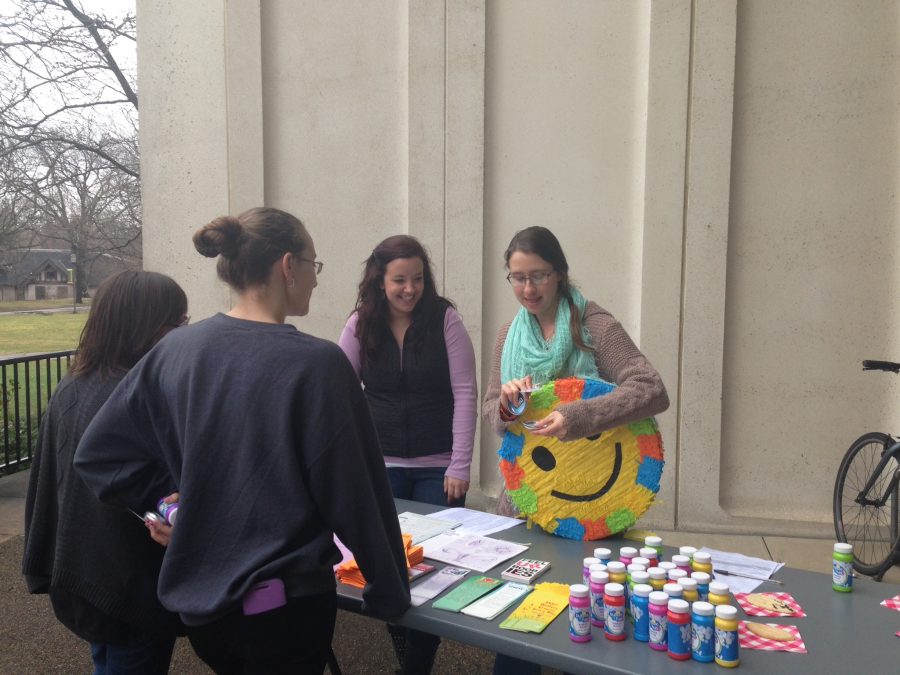April is STD Awareness Month and in honor of this, Chatham University’s Student Health Services held an event in front of the Jenny King Mellon Library.
The event, originally scheduled to take place on the quad, was moved to the porch because of the threat of rain and was scaled down accordingly. Undergraduate Assistant to Health Services Laura Riebe and Graduate Assistant Megan Zurasky were not deterred however.
“Sexual health is so important,” Riebe told one student as she showcased the available pamphlets, bookmarks, and novelty condom holders. When asked about why condom holders were being given away instead of just the condoms alone, Zurasky explained, “It’s not a good idea to put condoms in your wallet, so the cases are important.”
The event was held not only to provide information to the Chatham community about birth control, but also to help students learn where they can find health care in the city.
“It is really important for out of state students,” Zurasky said. “The health center doesn’t really do screenings so we want to make sure that everyone knows where to find a Primary Care Physician and other gynecological services.”
Resources available for students included a list of doctors and pamphlets on specific STDs and other infections that are prevalent among sexually active women such as Urinary Tract Infections (UTIs) and Vaginitis. Vaginitis is unique because it is not an actual infection that can be passed from a man to a woman. It is caused by a woman’s vagina not having enough lactobacillus bacteria, which usually keeps pH levels low inside the organ. Without these organisms, the vagina can become acidic. It often does not cause any symptoms other than off colored discharge and an odor, but it can increase the risk of contracting HIV if exposed. Men cannot give it to women, and woman can give it to other female sex partners. There was additional information on human immunodeficiency virus (HIV), chlamydia, and other more well-known infections.
Pointing at a pamphlet, Riebe said, “And we have a lot of information not only on heterosexual relationships, but same sex partners, as well. We really just want everyone to be safe.”
Along with all of this important information, there was a chart that showed the wide variety of birth control options available to women. The chart broke them down into ‘hormonal’ and ‘nonhormonal’ in order to help students understand that there is a difference.
“There is a lot of misinformation out there,” Zurasky said while discussing the chart, “It’s scary how many students don’t know, for example, that antibiotics make the pill ineffective.”
Nodding, Riebe added, “Or that you have to take it at the same time every day.”
The event was not only about medicine, however. It was meant not only to be an opportunity to teach students about women’s sexual health, but an opportunity to celebrate. The original event planned to be playing music and have a piñata filled with candy and condoms. Due to the rain the music was not played, but there was a very happy smiley piñata, vagina cookies, bubbles, and glow-in-the-dark condoms, proving that sexual health can be fun.
Health Services has all of the pamphlets from the event available in their office in the basement of Woodland Hall. There are also condoms available to all students for free.


